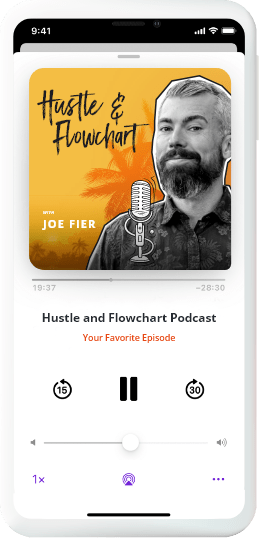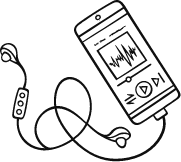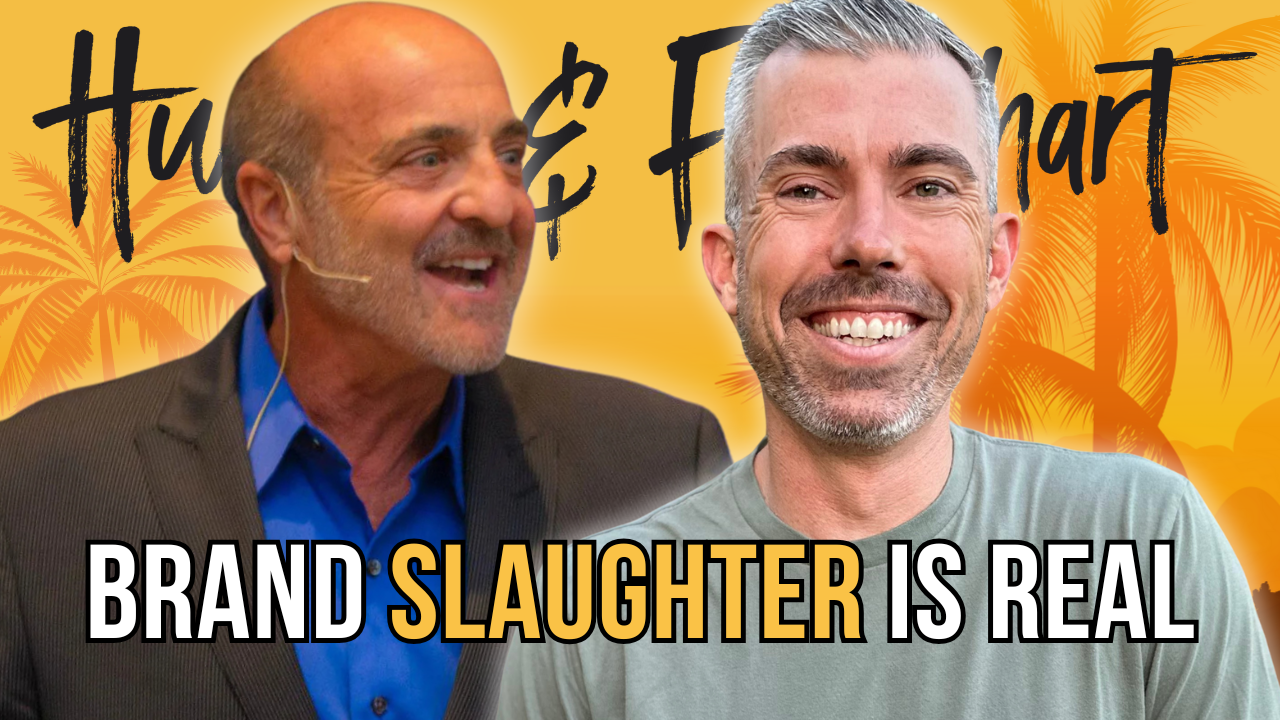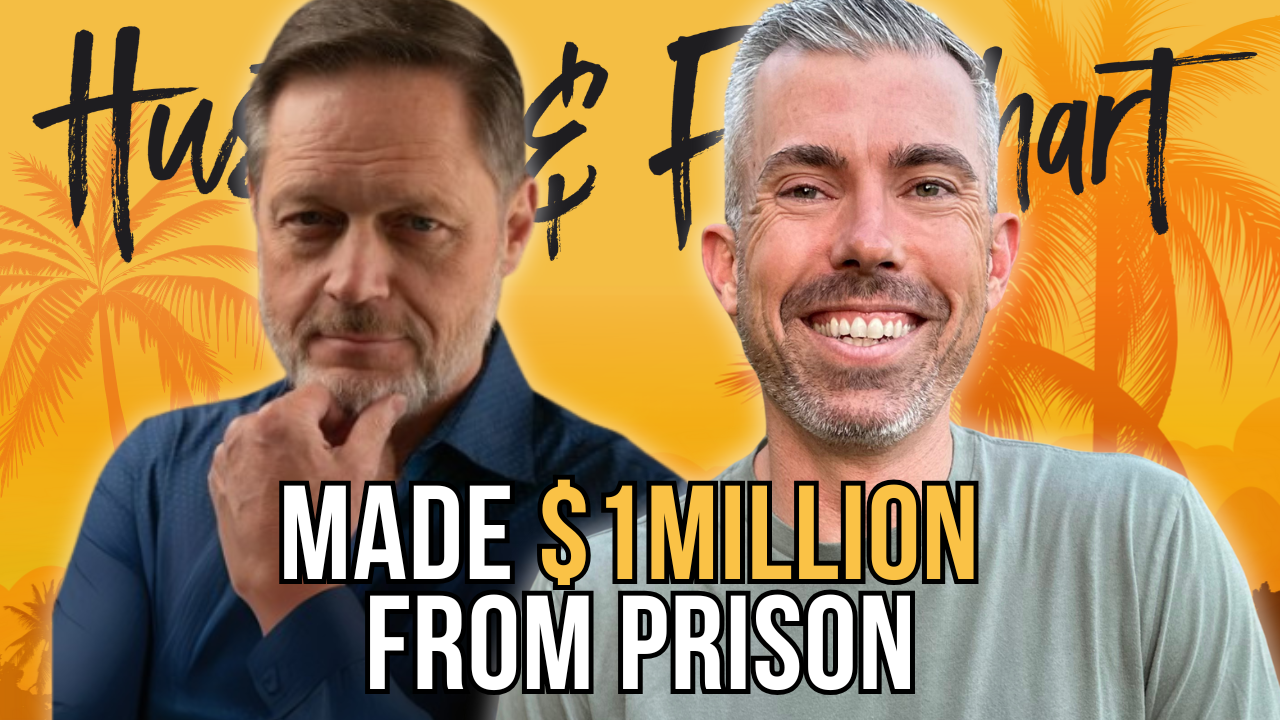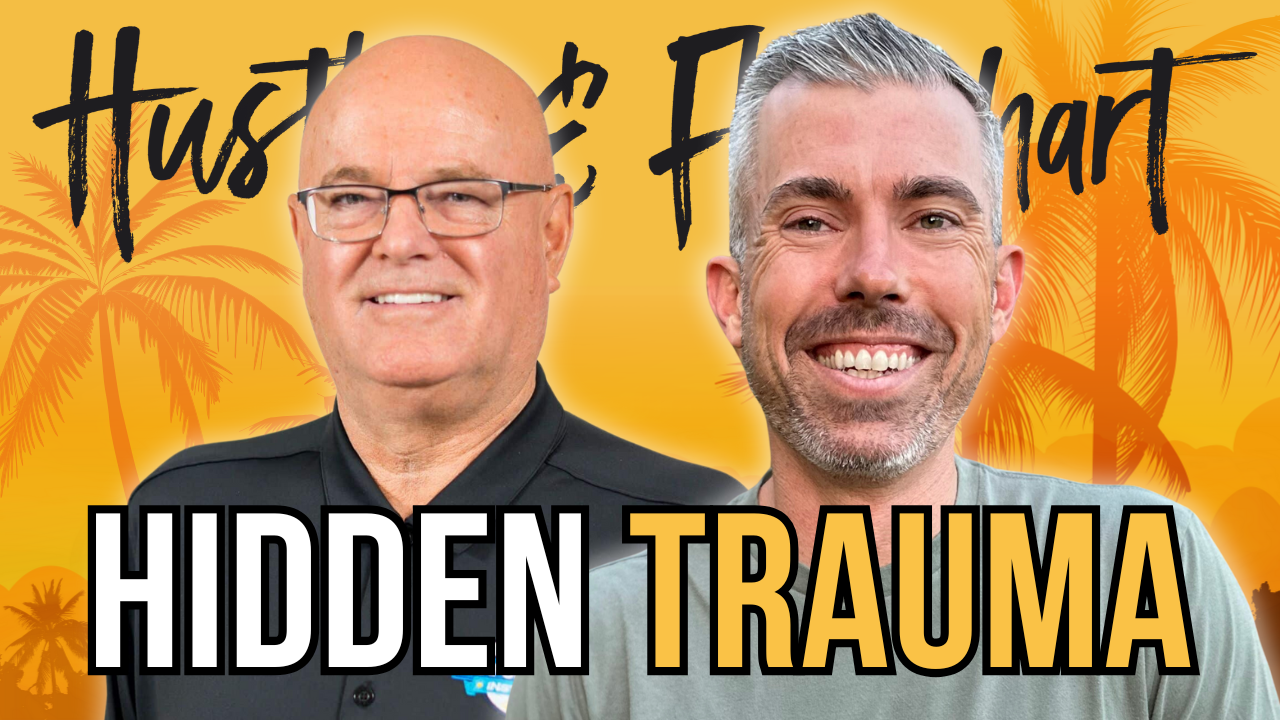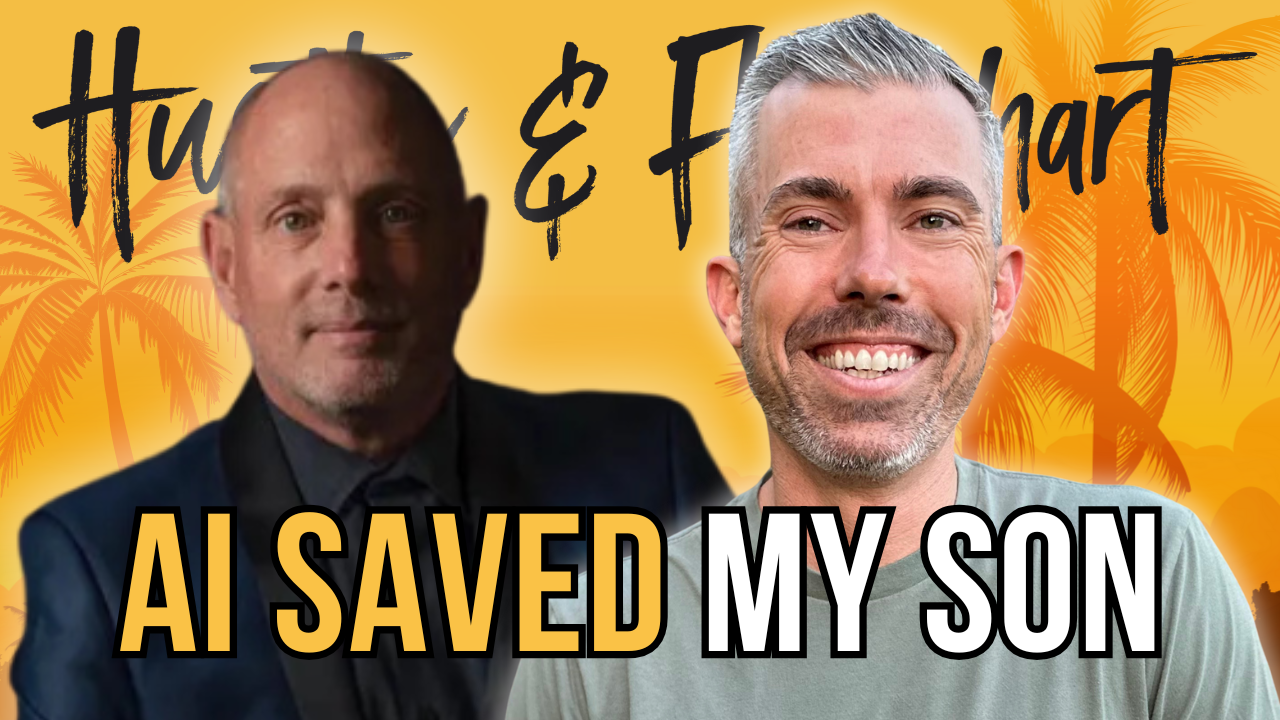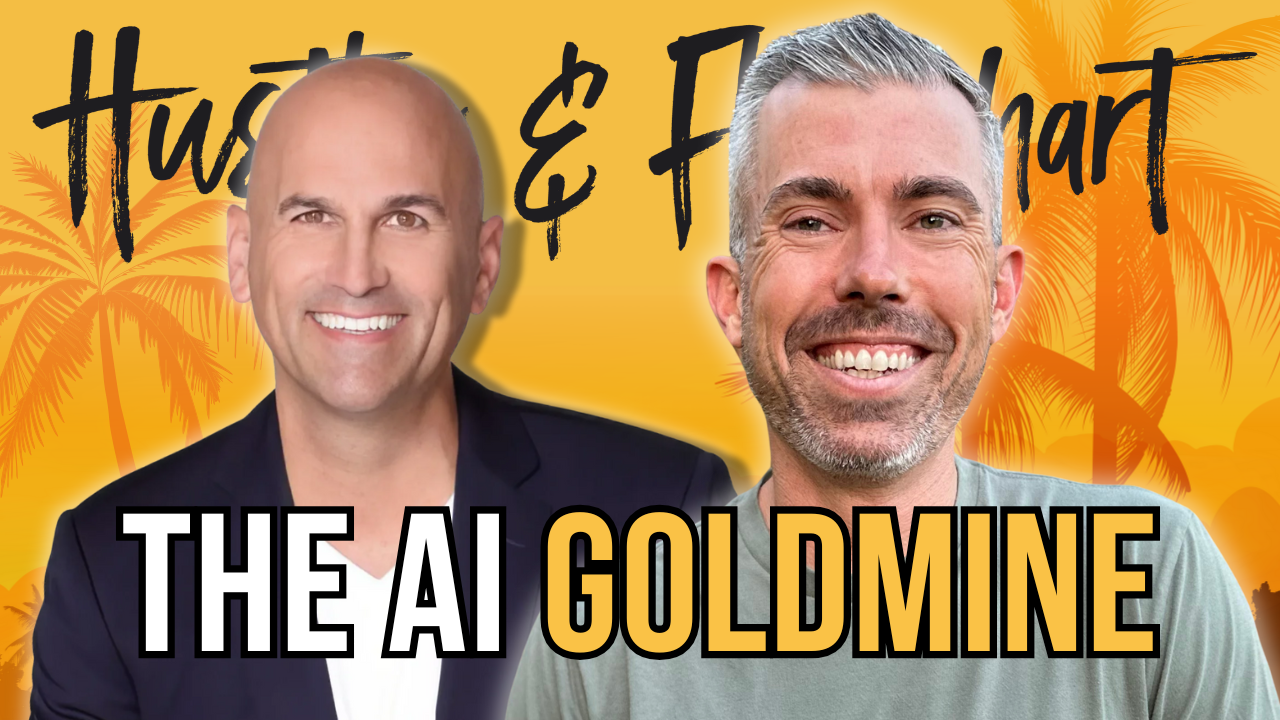Businesses today face new challenges online. Google, ChatGPT, TikTok, and other big tech platforms might know more about your business than your own customers do. These systems are the “gatekeepers” who often decide who gets found online. Jason Barnard joined me to talk about how you can take back some control. In this episode, we get into digital identity, building trust with AI, and what you can do to get ahead in search today.
Jason has spent 27 years helping people get found. He started in the early days of the internet—back when “SEO” was not even a term. Today, search, AI, and bots have changed how people discover businesses online. Old rules are out. New tactics are needed. Here’s what we covered in this action-packed episode.
https://youtu.be/Ot-oDP3swxw
Table of Contents
ToggleWhy the Rules of Search Have Changed
Google, ChatGPT, and other search engines work in a totally different way now. Jason explained that, in the past, you could “hack” search with tricks like white text on a white background or submitting different pages to different engines. Those days are long gone.
AI and search engines have become smart enough to look beyond keywords and website tricks. Today, these systems:
- Try to understand who you are, what you do, who you serve, and if you’re trustworthy.
- Build a “funnel” in their brain, taking users through their own journey to find answers.
- Decide when and if they send users to your website.
“You’re not optimizing for visits,” Jason said. “You’re optimizing for the perfect click”—the person who is ready to take action or buy.
Key takeaway: The machines do the nurturing and recommending for you. You need to position yourself so that when they’re ready to send someone your way, you actually get the sale or sign-up.
How AI Is Giving Out Recommendations (and What That Means for Your Business)
AI engines (like ChatGPT, Google’s AI mode, Microsoft Copilot, etc.) are designed to keep users in their own system, guiding them all the way to making a decision or purchase. This is called creating a “walled garden.”
If a user ever leaves Google or ChatGPT to visit your site, that’s a big chance. Make sure your site keeps them moving towards a decision—don’t let them bounce back to Google to look up something else.
Key takeaway: Build your own “walled garden” inside your site. Once you get a visitor, guide them carefully—don’t give them a reason to leave and look somewhere else.
The Power of Walled Gardens—Making Your Website Sticky
Jason described how the big tech platforms keep people in their ecosystem. When they do finally send a visitor to your page (which is rare), you should do the same: don’t send them away!
He laid out a basic framework:
- An awareness page draws people in.
- The page leads naturally to consideration and decision points.
- Don’t send folks back to Google to compare you with others.
Key takeaway: Design your site so each page funnels the user to the next logical step, just like Google does. Help them stick with you instead of the search engine.
Why Classic SEO Isn’t Enough Anymore
Jason’s own company once had a billion page views in a year. Only 20% came from Google. The rest came from marketing in the right places—parenting sites, schools, and similar websites.
He said, “Google is a bonus…ChatGPT is a bonus. You should be focusing on marketing to people who you can truly help in the places where they already hang out.” Search is just an amplifier now, not the main avenue.
Key takeaway: Don’t depend only on SEO. Build connections and traffic sources in your niche—forums, referral links, partnerships—and let Google and AI amplify you after you’re already established.
The Rise of Bots: Who Crawls Your Site (Google, TikTok, and More)
Bots don’t just come from Google and Bing anymore. Pulling from Kalicube’s data, Jason said only about 15% of their page views are bots, even though bots consume 60% of total web traffic (mainly by eating up files).
Jason said that TikTok is now one of the biggest crawlers—sometimes crawling sites more than Google!
He also pointed out:
- TikTok, Amazon, Meta, and even unknown bots like “Petalbot” crawl a lot of sites.
- Many of these bots aren't as “polite” as Google or Bing; they might ignore your rules and overload your website.
- You can block unwanted bots using services like Cloudflare.
Key takeaway: Understand who’s crawling your site and have a strategy for bots. Use tools to control access and make sure your site doesn’t break under the weight of aggressive bot crawlers.
Knowledge Panels: Your Digital Business Card
A Google Knowledge Panel is that box you sometimes see on the right side of search results. It’s Google’s way of saying: “We know who you are. We’re confident about your facts.”
Jason calls the Knowledge Panel a KPI—a sign that search engines understand you. If Google understands you, other AIs likely do too.
Key tips:
- Focus on getting your Knowledge Panel as a signal of authority and trust.
- Use your Knowledge Panel as proof that you’re in the game.
Useful quote: “Knowledge Panel is Google’s understanding of who you are…if Google understands you, the other AI probably understands you too.”
The “Entity Home”: Optimizing Your About Page
Your website’s About page is ground zero for helping bots (and people) know who you are and what you do. Jason explained a simple process:
- Write your About page clearly—say who you are, who you help, and what makes you credible.
- Link out to other trusted sources that confirm what you say (LinkedIn, Medium, news articles, etc.).
- Get those sources to link back to your About page.
- This creates a “loop” of credibility that’s easy for bots to follow.
Key takeaway: The first and most effective step to being understood online is getting your About page right and connected. This is the foundation for everything else.
Jason’s Three Steps: Understandability, Credibility, Deliverability
Jason broke down his Kalicube process into three steps:
- Understandability: Clearly state who you are, who you serve, and why you matter (that’s your About page!).
- Credibility: Back up your claims with trusted sources and links around the web.
- Deliverability: Once the first two are in place, make sure the AI and search engines can actually deliver you to people—optimize for easy crawling, reduce friction, and “organize” your info.
He calls this “algorithmic harmony”—make your site easy, “tasty,” and organized for algorithms to put together and recommend.
Useful quote: “Create a friction-free situation for bots…We create tasty content for algorithms…We organize ourselves for the engines.”
Time Is Ticking: Why You Need to Act in the Next Two Years
The next two years will be crucial. Jason predicts that AI will soon “know everything” about big topics. If you haven’t established yourself as a source, you’ll miss your chance to show up in search or AI recommendations.
- Act soon to become “sufficiently important” in your niche so that AI will come looking for you.
- Provide up-to-date, unique info and fill “information gaps”—AI loves new data that it doesn’t have yet.
- After this window, generic content will no longer help you get found. AI will simply use what it already knows.
Key takeaway: Don’t wait. You have a window to get recognized. Future AI will only “see” businesses and brands it already trusts and knows.
Final Highlights and Where to Learn More
AI agents are coming. In the future, personal and business “agents” will make choices for people (like booking travel, buying goods, etc.). These agents will use the same signals as today’s search engines to make their decisions. If your business isn’t known and trusted by the bots now, you’ll be left out of future purchases that happen on autopilot.
To take action now:
- Review and improve your About page.
- Make sure trusted sources confirm your story.
- Get your Knowledge Panel started.
Resources mentioned:
- Kalicube.com guides (for DIY help)
- Jason Barnard Website
- Google Search Results for Jason Barnard
- Scott Duffy
- Gert Mellak
- Cloudflare (for bot management)
Staying visible and trusted online means more than just old-school SEO tactics. You need a clear message about who you are, connections with trusted sources, and a plan for serving both people and bots. Jason Barnard gave us a simple roadmap: build your About page, back it up with other sources, and act fast so that AI learns about you before it’s too late.
Don’t treat Google and AI as the only path—think of them as amplifiers. Focus on your unique info and build real trust. The window is open, but you need to move quick. Take charge of your digital identity so you can keep winning in the age of AI.
Two Other Episodes You Should Check Out
- Gert Mellak: The Real Impact of SEO on Your Brand’s Success
- The AI Gold Rush: Most Entrepreneurs Are Failing—Here’s What Only 0.8% Understand! – Scott Duffy
Connect with Joe Fier
- What if you could have a FREE personal mentor on-demand?! With Joe's Hustle & Flowchart AI clone, you can tap into the knowledge from over 600 episodes any time! Whether you need advice on scaling, marketing, or productivity, my AI clone is here to help.
- Want us to build your clone for you? We’ll handle setup, testing, and integration so you can launch fast. Head to HustleandFlowchart.com/interest to get started!
- Hubspot has launched a whole new suite of AI Tools, check them on the Hubspot.com
- Check out other podcasts on the HubSpot Podcast Network
- We want to hear from you. Send us the One Thing you want to hear on the show.
- Connect with Joe on LinkedIn and Instagram
- Subscribe to the YouTube Channel
- Contact Joe: joe@hustleandflowchart.com
Thanks for tuning into this episode of the Hustle & Flowchart Podcast!
If the information in these conversations and interviews have helped you in your business journey, please head over to iTunes (or wherever you listen), subscribe to the show, and leave me an honest review.
Your reviews and feedback will not only help me continue to deliver great, helpful content, but it will also help me reach even more amazing entrepreneurs just like you!







